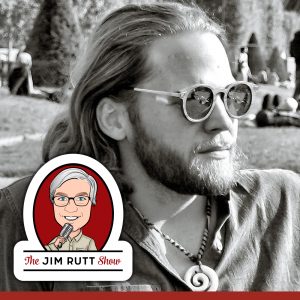
Currents 066: Matthew Pirkowski on Emergence in Possibility Space
 2022-07-22
2022-07-22
Download
Right click and do "save link as"
Jim continues his discussion with Matthew Pirkowski on ideas of emergence and how they can be applied to today's meta-crisis...
Jim continues his discussion with Matthew Pirkowski on ideas of emergence and how they can be applied to today's meta-crisis. They discuss the meaning of emergence, treating potential as ontologically real, exaptation & meta-adaptation, path dependency in the history of science, the naivety of closed systems, the apparent tension between energy efficiency & energy production, how GameA status signaling limits solution space, slack in metabolism & civilization, how greater energy inputs could synchronize with regenerative agriculture, carbon tax as a signal, the infosphere substrate of human self-organization, inertia vs conertia, artifactual membranes old & new, humanity's giant exaptic leap into a new possibility space, destabilization & continuity of creative expression, the tradeoff between exploration & exploitation, unifying mathematics, thermodynamics, & free energy mathematics, systems as model-generating agents, the representation of values & the lack of telos in online interaction spaces, an invitation to collaborate, and much more.
Episode Transcript
JRS Currents 053: Matthew Pirkowski on Grammars of Emergence
Incomplete Nature: How Mind Emerged From Matter, by Terrence Deacon
JRS EP 157 - Terrence Deacon on Mind's Emergence From Matter
The Emergence of Everything: How the World Became Complex, by Harold Morowitz
JRS EP 159 - Bobby Azarian on the Romance of Reality
The Nature of Technology: What It Is and How It Evolves, by W. Brian Arthur
Order Out of Chaos: Man's New Dialogue with Nature, by Ilya Prigogine and Isabelle Stengers
How the World Really Works: A Scientist’s Guide to Our Past, Present and Future, by Vaclav Smil
Energy and Civilization: A History, by Vaclav Smil
"On the Phenomenology of Hyper-Connectivity," by Matthew Pirkowski
Matthew Pirkowski works at the intersection of software, psychology, and complex systems. These interests first took root while studying Evolutionary Psychology and assisting with Behavioral Economic research at Yale’s Comparative Cognition Laboratory. From there Matthew began a career in software engineering, where he applied these interests to the development of software interfaces used by millions around the world, most notably as a member of Netflix’s Television UI team, where he worked on experimental initiatives conceptualizing and prototyping the future of entertainment software. Presently, Matthew consults on systems architecture, advises companies within the startup space, and writes about topics related to the evolution of human socioeconomic, technological, and representational systems–in particular the emergence and impact of cryptoeconomic protocols, as outlined in his Crypto Beyond Capitalism essay series. He spends most of his free time maintaining, restoring, and growing food on 6 recently acquired acres of Oregon woodlands.
view more
More Episodes
EP 181 Forrest Landry Part 1: AI Risk
 2023-03-23
2023-03-23
 2023-03-23
2023-03-23
Currents 086: Monica Anderson on Bubble City
 2023-03-16
2023-03-16
 2023-03-16
2023-03-16
EP 180 Lynne Kiesling on the Electrical Grid
 2023-03-03
2023-03-03
 2023-03-03
2023-03-03
EP 172 Brendan Graham Dempsey on Emergentism
 2023-01-09
2023-01-09
 2023-01-09
2023-01-09
012345678910111213141516171819
Create your
podcast in
minutes
- Full-featured podcast site
- Unlimited storage and bandwidth
- Comprehensive podcast stats
- Distribute to Apple Podcasts, Spotify, and more
- Make money with your podcast
It is Free
- Privacy Policy
- Cookie Policy
- Terms of Use
- Consent Preferences
- Copyright © 2015-2024 Podbean.com





